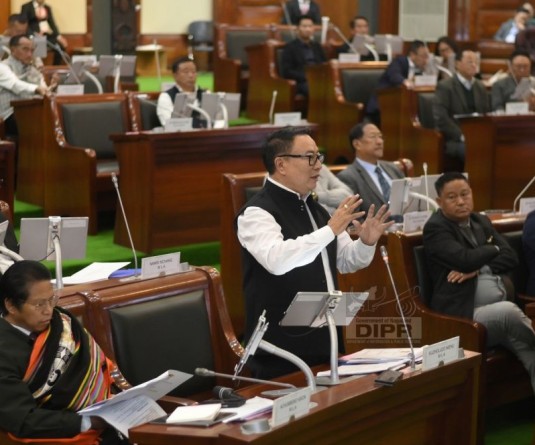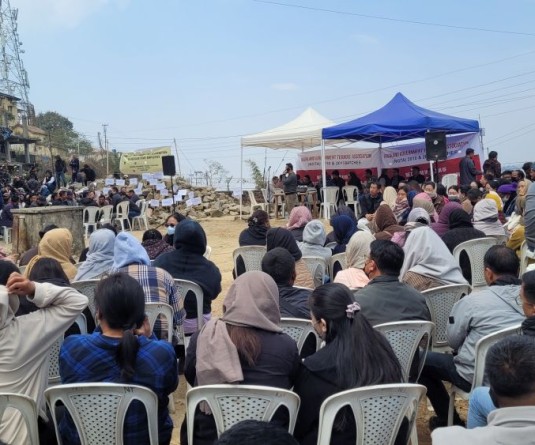
Dimapur, June 14 (MExN): The Naga Peoples Movement for Human Rights (NPMHR) has condemned the position of the Government of India for extension of ‘Disturbed Areas Act’ and rejection of what it termed as “the just demand” for repealing the Armed Forces Special Powers Act (AFSPA); “one of the most inhumane law ever legislated across the world reflecting India’s enduring democratic deficit”.
Terming it as a serious threat to world peace and security, NPMHR Secretary General Nepuni Piku in a press communiqué stated that it considered this imposition of martial law provision on the Nagas and other struggling communities, denying them of their basic human dignity under the pretense of ‘protecting territorial integrity and promoting national security’ by democratic India.
The NPMHR has further held the Government of India wholly responsible for the continuing cases of killings of civilians and clashes amongst the armed cadres. Even with the existence of a loose ceasefire monitoring mechanism and rising demands for amendment in the ground rules for effective enforcement, Government of India deliberately continues to ignore the efficient implementation of the ceasefire ground rules exacerbating the tension and multiplying the casualties among the Nagas, the rights body alleged.
Stating that India will have no moral standing in the international community to speak and claim itself as the largest democratic country while these genocidal policies continues to be perpetrated in its so called backyard occupied north east and the Naga homeland.
NPMHR also stated that it considered India’s quest for positions in international forum such as UN Council of Human rights and the UN Security Council as serious deception due to its dismal human rights record in Naga homeland and possesses grave threat to minority and indigenous peoples struggling for basic human security and the recognition of their right to self determination.
NPMHR as such has demanded that India ratify the Rome statute on the International Criminal Court (ICC) with universal jurisdiction over cases of genocide, crime against humanity, war crimes, torture, extrajudicial executions and disappearance; which will strengthen her assertion as a functional democracy to maintain accountability and transparency towards its commitment to the various international Human rights treaties it had ratified so far.
The AFSPA, it stated promoted impunity by allowing torture, extrajudicial executions and disappearance, besides many other forms of human rights violations leaving behind a huge ‘Accountability gap’ leading to destruction of our common humanity and dignity.
NPMHR appealed to the Government of India to demonstrate sincerity and commitment to the Indo-Naga peace process by repealing the draconian Armed Forces Special Powers Act and restoration of democratic space to Nagas and other struggling communities. “How can structures of violence coexist with the genuine commitment in the search for peace, unless those structures are dismantled? Is the Government of India ruling the Nagas through their free express informed consent or imposing their authority by substituting the powers of the state through repression and manipulation, for the consent of the people?” the NPMHR questioned.
Pointing out that India’s governing of Naga homeland has so far relied on a system of repressive legislation overseen by a complaint judiciary and enforced by (its) military forces, NPMHR pointed out that without scrapping this anti-democratic legislation from the statute books, there is no hope for dignified survival and unless Government of India listens to the common cry of the people and constructively creates space for democratic values to re-emerge, it is tantamount to diminishing its own avowed principles of participatory democracy and non-violence.
NPMHR asserted that if Nagas continues to be excluded from a rights-creating process, the only way to realize more attention and understanding will ‘depend on our organized and persistent acts of defiance and resistance to this annihilation processes’. NPMHR appealed to the Naga Public, solidarity groups in India and the international community to rise up against this anti-peoples legislation for the larger interest of just peace and global security as ‘violation of human rights in any part of the world is a threat to the human race as a whole and protection and promotion of human rights is the concern for all’.






